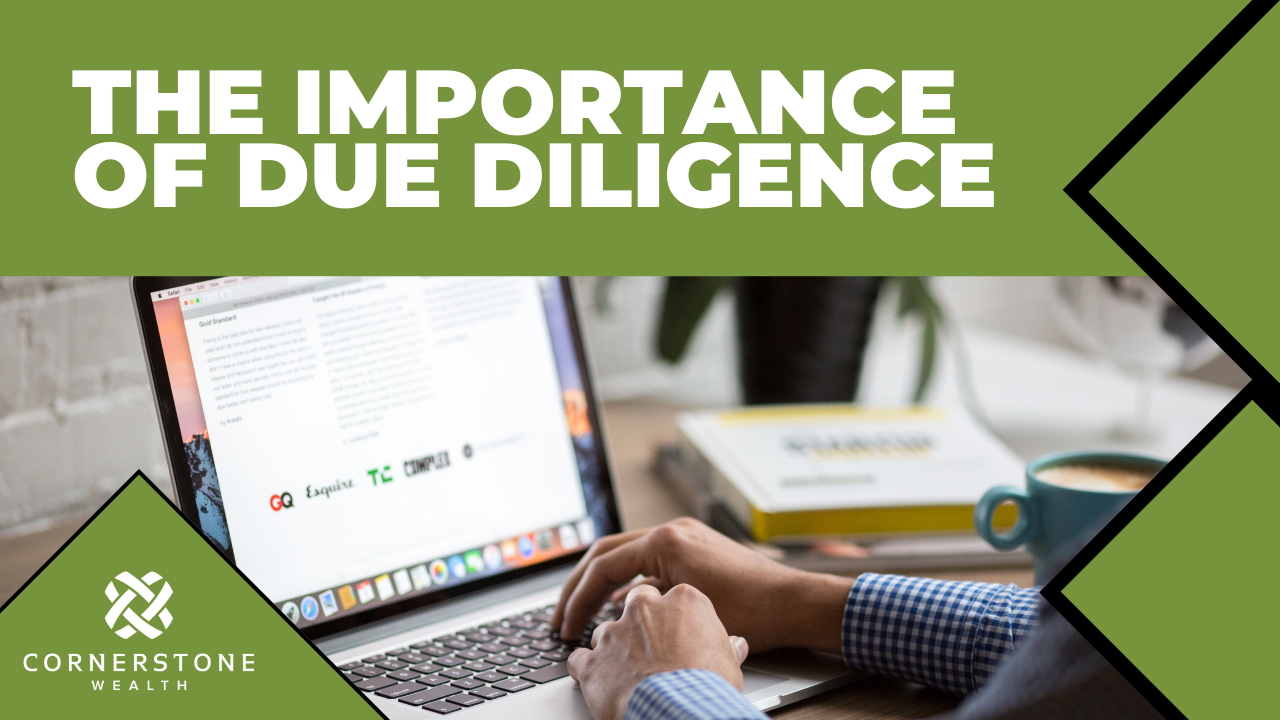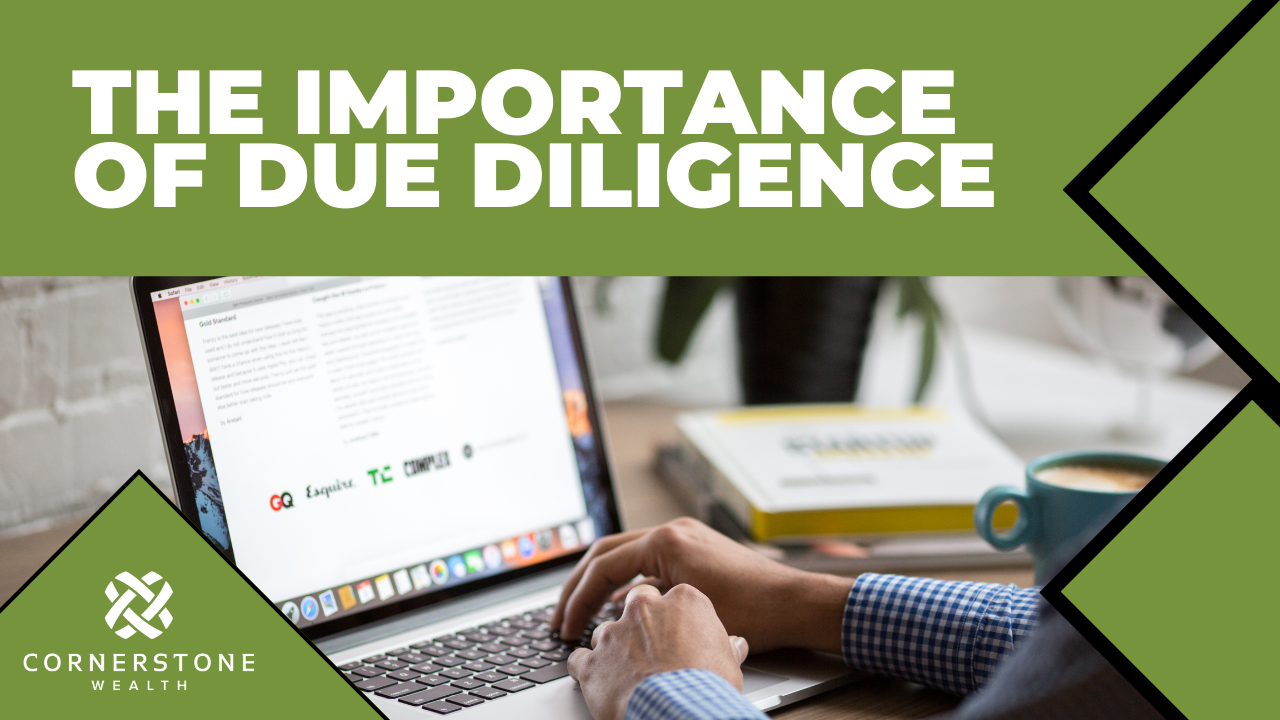The Vital Role of Due Diligence in Financial Planning: Safeguard Your Investments
- Blog
- The Vital Role of Due Diligence in Financial Planning: Safeguard Your Investments

The Vital Role of Due Diligence in Financial Planning: Safeguard Your Investments
- By Cornerstone Wealth
- February 20, 2024
- 0
 In the world of personal finance, one of the most significant decisions you can make is choosing a financial advisor. Entrusting someone with your hard-earned money requires careful consideration and due diligence. While it's tempting to rely solely on recommendations or flashy advertisements, conducting thorough research on your potential financial advisor is crucial to safeguarding your financial future.
In the world of personal finance, one of the most significant decisions you can make is choosing a financial advisor. Entrusting someone with your hard-earned money requires careful consideration and due diligence. While it's tempting to rely solely on recommendations or flashy advertisements, conducting thorough research on your potential financial advisor is crucial to safeguarding your financial future.
Why Due Diligence Matters
Due diligence is not merely a formality; it's a crucial step in safeguarding your investments and financial well-being. Here's why it's essential:
Trust and Transparency:
Your financial advisor will have access to sensitive information about your finances, goals, and aspirations. Establishing trust is paramount in this relationship. Conducting due diligence helps ensure that your advisor is trustworthy and transparent in their dealings.
Regulatory Compliance:
Financial advisors are subject to various regulations and standards set by regulatory bodies. By conducting due diligence, you can verify that your advisor is compliant with these regulations, reducing the risk of fraud or misconduct.
Suitability:
Every individual's financial situation is unique, and what works for one person may not work for another. Due diligence allows you to assess whether the advisor's expertise aligns with your specific financial needs and goals.
Peace of Mind:
Thoroughly researching your financial advisor gives you peace of mind knowing that your money is in capable hands. This confidence allows you to focus on other aspects of your life without worrying about your financial future.
Steps to Conducting Due Diligence
When researching potential financial advisors, consider the following steps to ensure a comprehensive evaluation:
-
Background Checks: Start by conducting a thorough background check on the advisor. Look into their professional history, including previous employment, education, and any disciplinary actions or legal issues. Online databases and regulatory websites are valuable resources for this information.
-
Verify Credentials: Ensure that the advisor holds the necessary credentials and licenses to practice in their field. This may include certifications such as Certified Financial Planner (CFP), Chartered Financial Analyst (CFA), or licenses from regulatory authorities like the Securities and Exchange Commission (SEC) or the Financial Industry Regulatory Authority (FINRA).
-
Review Regulatory Disclosures: Examine regulatory disclosures to gain insights into any past disciplinary actions, complaints, or legal proceedings involving the advisor. Documents such as Form ADV (for registered investment advisors) and Form CRS (Customer Relationship Summary) provide valuable information about the advisor's background and potential conflicts of interest.
-
Seek References: Don't hesitate to ask the advisor for references from past or current clients. Speaking directly with individuals who have worked with the advisor can provide valuable insights into their professionalism, communication style, and overall satisfaction with the services provided.
-
Interview Potential Advisors: Schedule meetings or phone calls with potential advisors to ask specific questions about their investment philosophy, fee structure, and approach to client relationships. Use this opportunity to gauge their expertise, communication skills, and suitability for your financial needs.
Choosing a financial advisor is a significant decision that requires careful consideration and due diligence. By conducting thorough research, including background checks, verifying credentials, and reviewing regulatory disclosures, you can mitigate risks and ensure that you're entrusting your finances to a qualified and trustworthy professional. Remember, the time and effort invested in due diligence today can lead to a more secure and prosperous financial future tomorrow.
This is for informational purposes only. Investment advisory services offered through Cornerstone Wealth Group, LLC dba Cornerstone Wealth, an SEC registered investment adviser.
Closing the Gender Pay Gap: Empowering Women to Secure their Financial Futures
Financial Planning for Dentists: A Smile-Centric Strategy
6 Things Every Woman Should Know About Theirs Finances
Contact Info
- Phone:704-987-3410
- Email: info@cwgadvisors.com
Web: cwgadvisors.com








